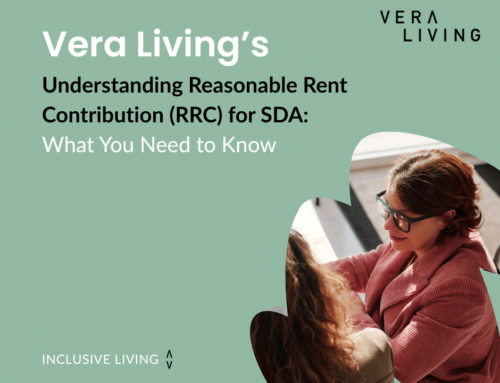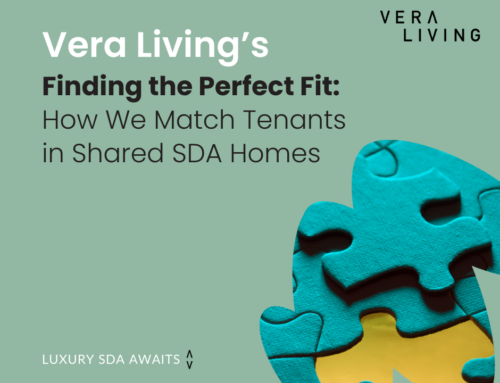Choice and control are of paramount importance for all NDIS participants. For participants who live in Specialist Disability Accommodation (SDA) and use Supported Independent Living (SIL) services, the separation between SDA and SIL plays a crucial role in enhancing their quality of life. It can empower them to live more independently and with greater autonomy.
A Supported Independent Living provider is responsible for the care participants receive in the home, assisting with daily tasks to help independent living. Once Vera Living have developed a premium SDA home, we collaborate with a SIL provider to ensure the best supports in our tenants’ homes, when and how they choose. Find out how we do this here.
Here, Vera Living explore the five key reasons why keeping SDA and SIL separate can provide more tailored support, greater flexibility, and improved outcomes for individuals with disabilities.
Separation ensures greater choice and control for NDIS participants, and here’s how:
1. Enhanced Personal Choice
Separating SDA and SIL allows NDIS participants to choose their preferred living arrangements independently from the support services they receive. This separation fosters greater independence and supports individuals choose housing that best meet their unique needs and preferences. It gives them greater choice over where they live, including who and what local amenities are nearby.
2. Tailored Support Services
When SDA and SIL are separate, participants can customise their supports without being limited by their accommodation options. This flexibility enables individuals to receive specialised care tailored to their specific disabilities, enhancing their overall quality of life. It ensures that complex needs can be met with dedicated specialised supports without restrictions from what is offered by their accommodation, creating more inclusivity, choice, and better care.
3. Increased Independence
By differentiating between accommodation and support, participants can achieve a higher level of independence. They are not bound to a specific provider for both their living and support needs, empowering them to make decisions that promote self-reliance and personal growth.
4. Greater Protection
For participants receiving SDA and SIL from the same provider, there is a higher risk of abuse. Where there are two separate providers, this creates greater safeguarding and protection of participants, reducing their vulnerability and the likelihood of any issues. It ensures greater ability to act when something isn’t right, and either provider can help facilitate any changes that are needed, whether it be changes related to the home or supports. This gives greater control to participants and reduces risks of being stuck in substandard homes or with substandard care for fear of losing both.
5. Market Competition and Innovation
Separating SDA and SIL encourages a collaborative market, driving innovation and improving service quality. Providers are motivated to offer better services and more diverse accommodation options to meet greater needs, ultimately benefiting NDIS participants by providing more choices and higher standards of care.
The continued separation of SDA and SIL will ensure that NDIS participants have the freedom to shape their living situations and support systems, aligning with their individual NDIS goals and aspirations. Vera Living collaborates with the best Supported Independent Living providers to ensure our tenants have the best supports in their home.







